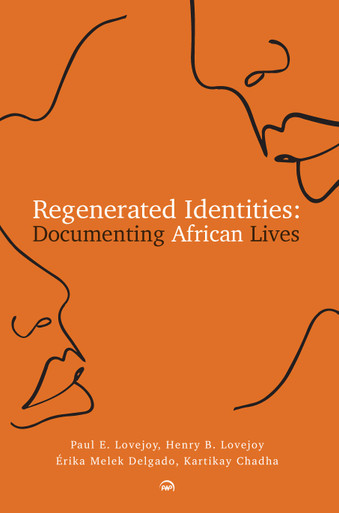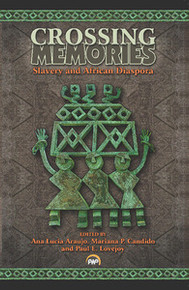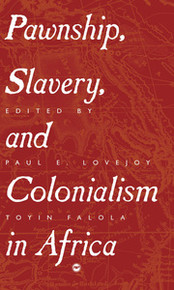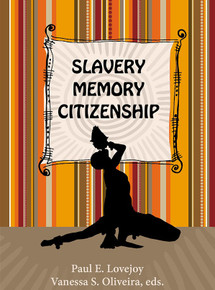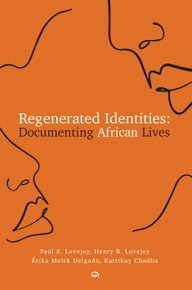Categories
Categories
Authors
Authors
- Home
- HARRIET TUBMAN SERIES
- Regenerated Identities: Documenting African Lives edited by Paul E. Lovejoy, Henry B. Lovejoy, Érika Melek Delgado and Kartikay Chadha
Regenerated Identities: Documenting African Lives edited by Paul E. Lovejoy, Henry B. Lovejoy, Érika Melek Delgado and Kartikay Chadha
Regenerated Identities: Documenting African Lives edited by Paul E. Lovejoy, Henry B. Lovejoy, Érika Melek Delgado and Kartikay Chadha
Product Description
Digital Humanities has revolutionized the study of the history of Africa and the African diaspora. This volume documents the development of path breaking digital projects and related websites and hence in itself is a history of digital humanities that pertain to people of African descent. The projects that are examined include the Louisiana Slave Database, Slavery Images, Freedom Narratives of Africans from the Era of Slavery, Language of Marks, Slave Societies Digital Archive, DATAS – Documenting Africans in Trans-Atlantic Slavery, and the extensive drawings of Eugène de Froberville. Cases specifically associated with colonial military records in Sierra Leone, the movements of the enslaved in the Indian Ocean, the plight of women in the gold mines of New Granada, or the surviving records of Africans in one set of registers in a single church in Bahia. Finally there is a discussion of Walk With Web Inc and its development of the backend for many of these projects in Regenerated Identities, which is also the title of this volume.
***********************************************
Finally, a digital humanities approach to studying the experiences of enslaved African people in the Atlantic World has come of age! Regenerated Identities: Documenting African Lives is a breakthrough in Digital Africa Diaspora Studies and its future possibilities. This collaboration between young and senior scholars has given us a new direction for doing Digital African Atlantic history. The book provides excellent guidelines for the ethics and epistemologies of studying the experiences of enslaved Africans in the digital space and the nuances of data management and dissemination. The result is a brilliant intellectual contribution to restorative justice that promises to be a reference book for generations of scholars.
--Akin Ogundiran, Chancellor’s Professor, The University of North Carolina at Charlotte and author of The Yorùbá: A New History.
Africa in the Digital Age is revealed in this volume, ushering in a new height in scholarship that is accessible beyond the traditional library. African history is now in the grasp of anyone with access to the internet, as the contributions in this book explant. The editors have pulled together an exciting array of scholars working on innovative digital projects which are changing how we think, write, and visualize African and African diaspora history. Regenerated Identities is a major contribution to understanding how to document the past ethically in the digital age.
--Toyin Falola, Jacob and Frances Sanger Mossiker Chair in the Humanities, University of Texas at Austin
About the Editors
Paul E. Lovejoy is Distinguished Research Professor, Department of History, York University, and a Fellow of the Royal Society of Canada
Henry B. Lovejoy is Associate Professor, Department of History, University of Colorado at Boulder, and Director of the Digital Slavery Research Lab.
Érika Melek Delgado holds a Leverhulme Fellowship at King’s College, London, and is Associate Director of the Freedom Narratives project.
Kartikay Chadha is a Ph.D. candidate in School of Information Studies at McGill University and C.E.O. of Walk With Web Inc.
World Rights
Category: Digital Humanities, Demography, Slavery, History
Publication date: 2022
Trim size: 6x9”
Page Count: 446
 Loading... Please wait...
Loading... Please wait... 
